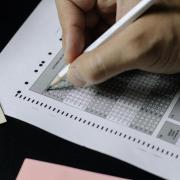
Green transport and more sustainable methods of travel have been filling our newsfeeds lately. But what does that actually mean?
In November, the government made a commitment to ending the sale of diesel and petrol cars by 2030. This historic move has seen funding of nearly £1.8 billion invested in infrastructure and grants to work towards zero-emission vehicles. Currently, there are over 235,000 pure-electric cars on UK roads, but there is still a long way to go to ensure that all cars are electric. And whilst the positives of electric cars are evident, is this green move entirely deserving of such praise?
Electric cars are famous for being the green alternative to driving, and in a world consumed by pressing climate issues, a low carbon footprint alternative is welcomed eagerly. However, electric cars are not perfect - if the electricity used to charge the car is generated through burning fossil fuels, the CO2 emissions are still astronomical. According to the Union of Concerned Scientists, electric cars actually generate more carbon emissions that diesel and petrol cars, as sourcing the raw materials for the batteries (such as lithium, nickel, cobalt or graphite) rely on mining activities that having processes that are very polluting. It is believed that electric car batteries should last anywhere between 10-20 years, but the problem of what to do with the battery becomes very pressing at the end of the car's life span. Many parts of a car can be recycled, reused in different ways, often to create new cars, and at the moment, where there are very few electric cars on the road, it is possible to recycle batteries by separating the raw materials. But as soon as there are more electric cars on the roads, recycling the batteries becomes much harder.
Electric cars are also much more expensive, averaging around £44,000 compared to diesel and petrol cars can begin at about £17,000. It is currently very difficult to buy used electric cars as they are so new to the roads that there are very few in supply. However, many believe that buying an electric car is an investment in the future, and by doing so you are ensuring future generations will have cleaner air and less CO2 emissions.
I spoke to Perrie Kennedy, a representative from Merton Council who told me "Merton in partnership with Source London have so far installed 140 dedicated EV charging points before the first lockdown. We are currently investigating locations for Lamp Column charging points. We are also currently working with our partner to investigate further 20 sites for dedicated EV charging points."
London is now home to more than 500 rapid charge points, 5500 residential charge points, and there are nearly 4000 electric taxis operating in the UK capital. The number of charge points in the UK has increased by over 15,000 in the past five years, however charging electric cars can still be difficult. There are 32,973,206 registered in the UK, but only around 20,300 charging points, not nearly enough to fuel all the cars used in the country. So in order to have a zero-emissions car industry, the numbers of UK charging points will have to dramatically increase in order to meet supply demands.
Whilst electric cars will be the way forward, what other alternatives are there? The best alternative is to walk or cycle where possible, highlighted by the Sustrans Big Pedal 2021, the UK’s largest inter-school cycling, walking and scooting challenge, which is currently taking place until the 30th of April. I spoke to Phoebe Clayton and Bianca Pacciani-Massai, both aged 15, who have both taken part in the challenge. They told me "[We] started cycling to school as a way to get a little more exercise into our daily routine. We found cycling was actually quicker than taking the tube, especially when with friends. We've been earlier to school and it's given us a fresh start to the day as well as a nice way to unwind after a day of long lessons." Lockdown has provided the opportunity for many to dust of their bikes and get outside, so why not see if you can change journeys you would otherwise take by car and do them on bike or foot?



























